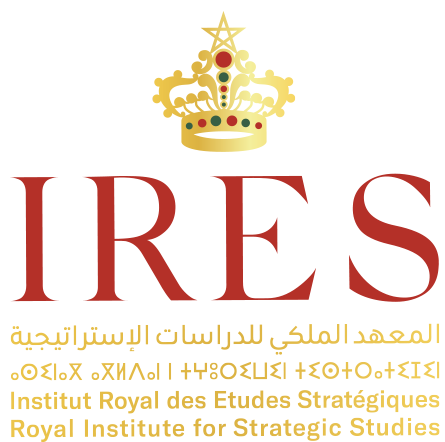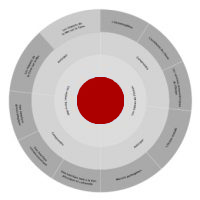Governance / INTERNATIONAL RELATIONS OF THE KINGDOM
This strategic report of the Royal Institute for Strategic Studies is devoted to the Kingdom’s international relations, in accordance with the Orientations of the Royal Message of August 30, 2013, calling on the Institute to dedicate its efforts to Morocco’s foreign relations and the diplomatic field. It refers mainly to the conclusions of the studies carried out by IRES on Morocco’s foreign relations, particularly with the African continent. It is enriched by the proposals made during the meetings organized by the Institute.
The strategic report presents the foundations of the Kingdom’s foreign policy as outlined in the Vision of His Majesty King Mohammed VI and provides an overview of Morocco’s role in the concert of nations, whether in terms of multilateral cooperation or the resolution of global issues. It also describes the Kingdom’s relations with other regions of the world, according to a reading grid that distinguishes between neighboring countries (border countries), areas of belonging (Arab-Muslim world, Africa and the Euro-Mediterranean area) and areas of opening (American continent and Asia).
Indeed, since the twentieth century, Morocco has pursued its opening to the outside world, a strategic choice that cannot be ignored, by relying on the Kingdom’s assets, which include:
- its geographical position, at the crossroads of the European and African continents, with a projection on the Arab world, placing Morocco at the center of the concerns of the great powers (security in the Strait of Gibraltar, political stability in the southern Mediterranean, the fight against terrorism and organized crime in the Sahel …);
- an international behavior, based on political and religious moderation, which allowed the Kingdom to play a role of privileged mediator and bridge between the Muslim world and the West;
- an increased sensitivity to global issues (human development, global security, climate change, defense of an equitable and just international order…);
- judicious choices, based on the development of promising sectors, contributing to the emergence of a modern Morocco that remains, nevertheless, attached to its values and ancestral traditions.

